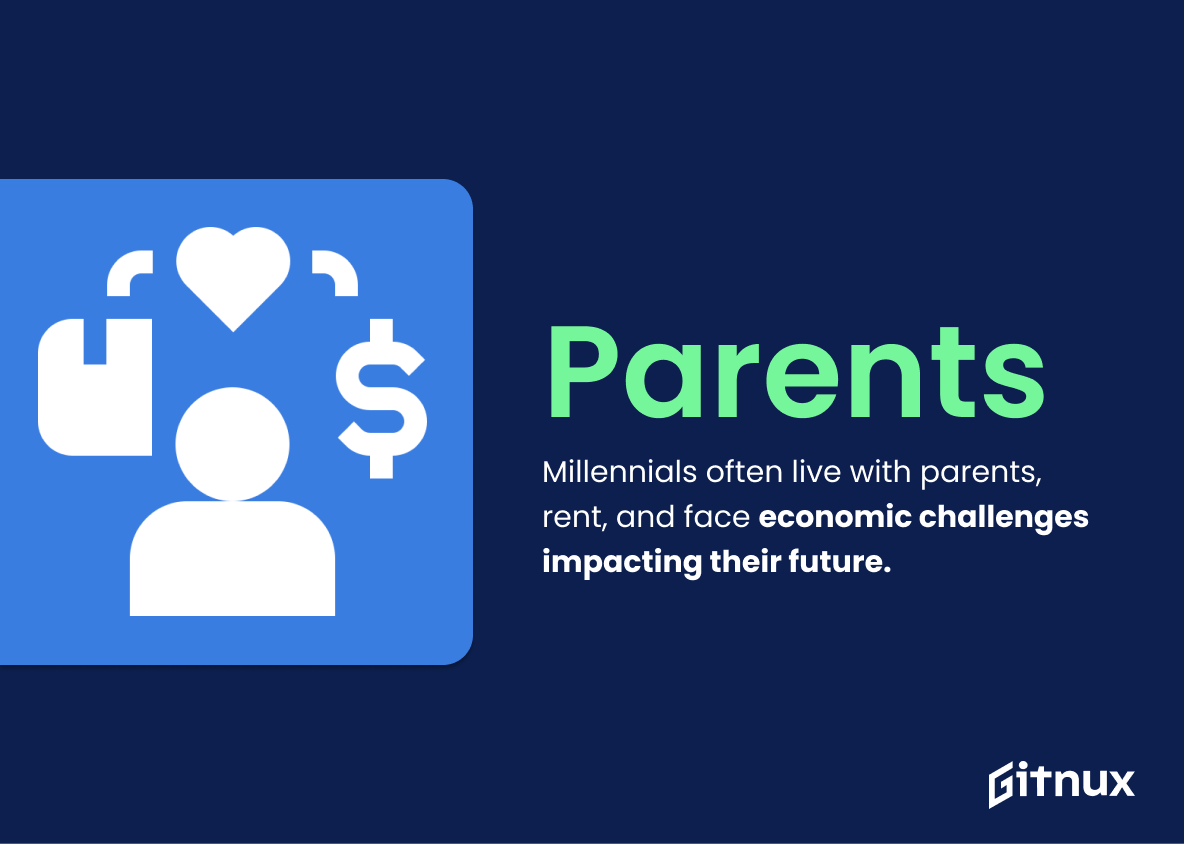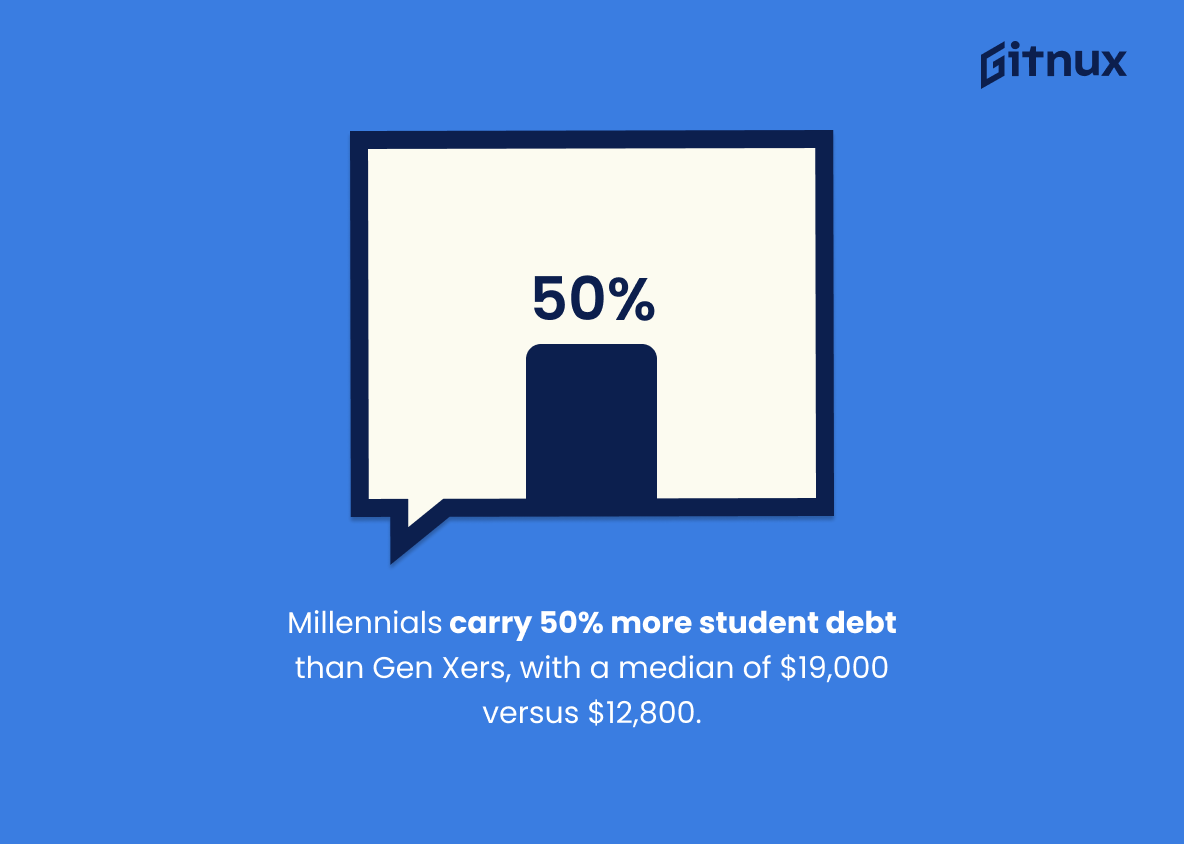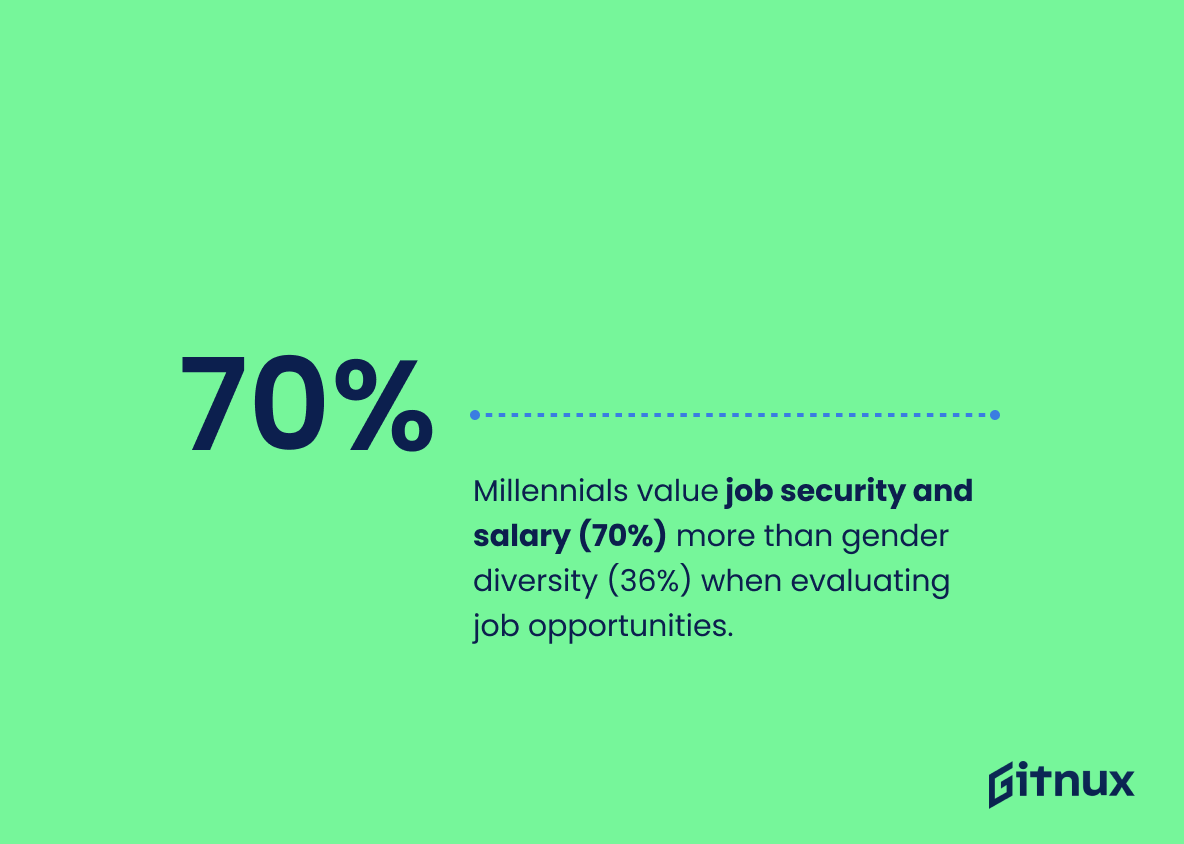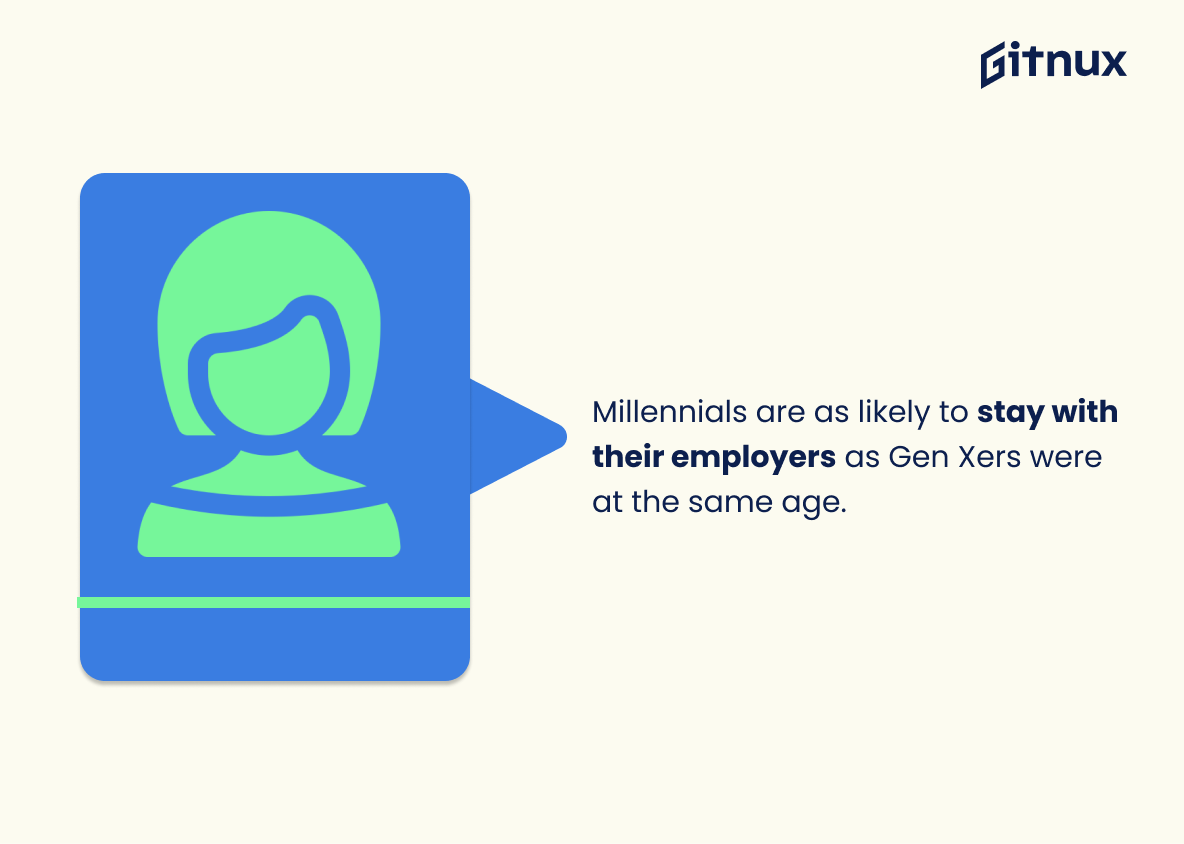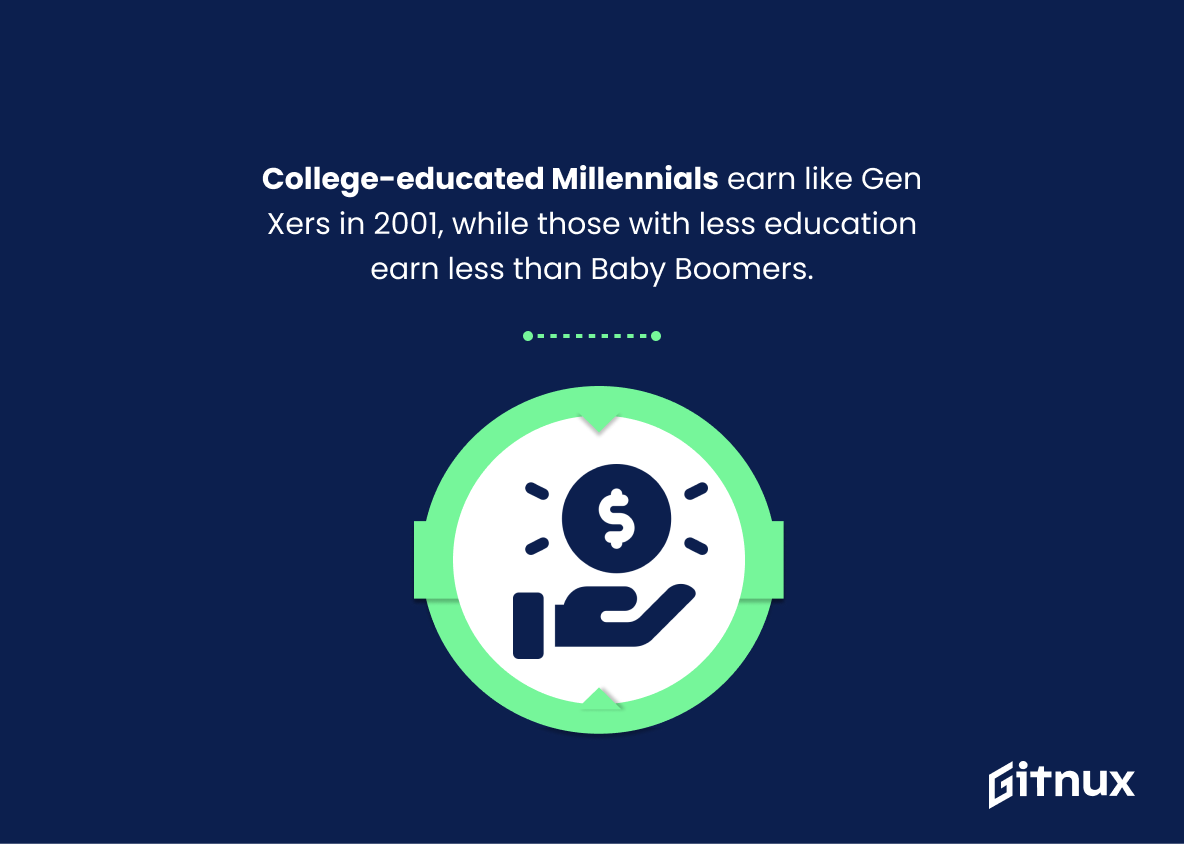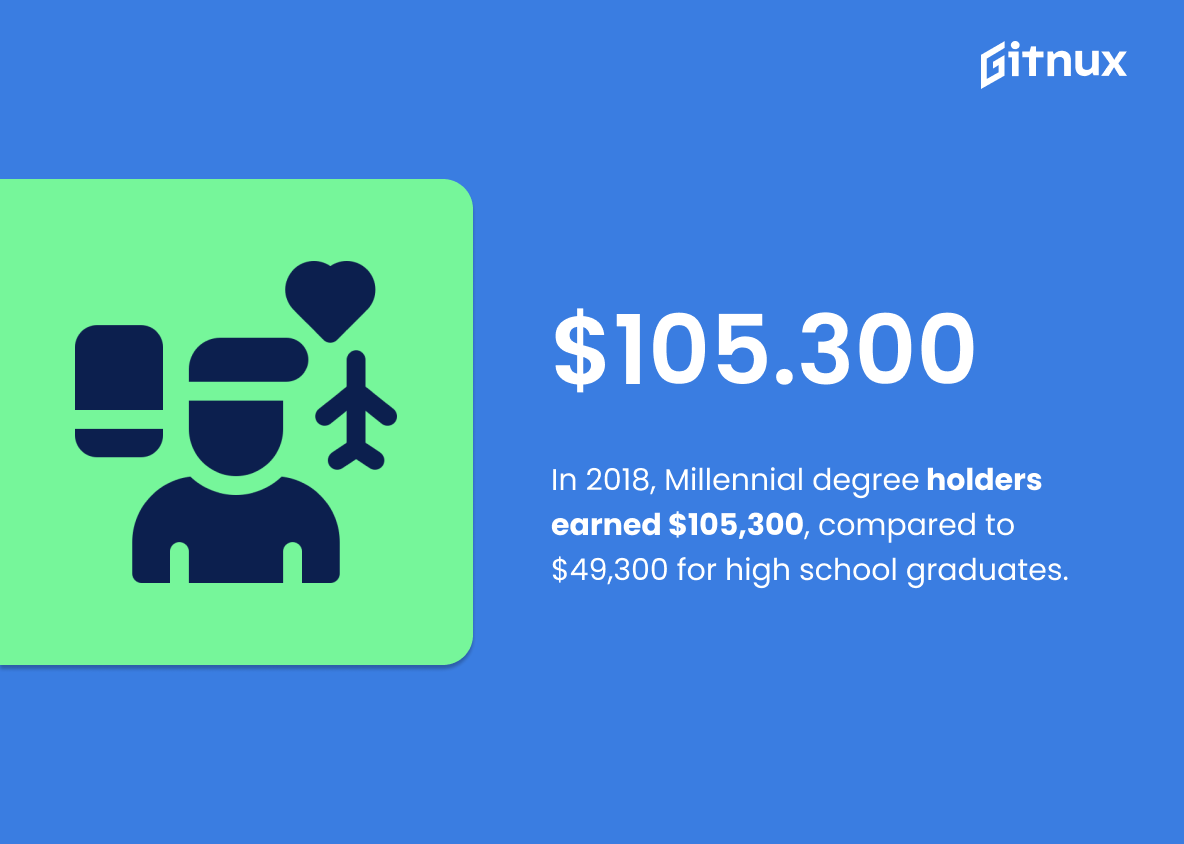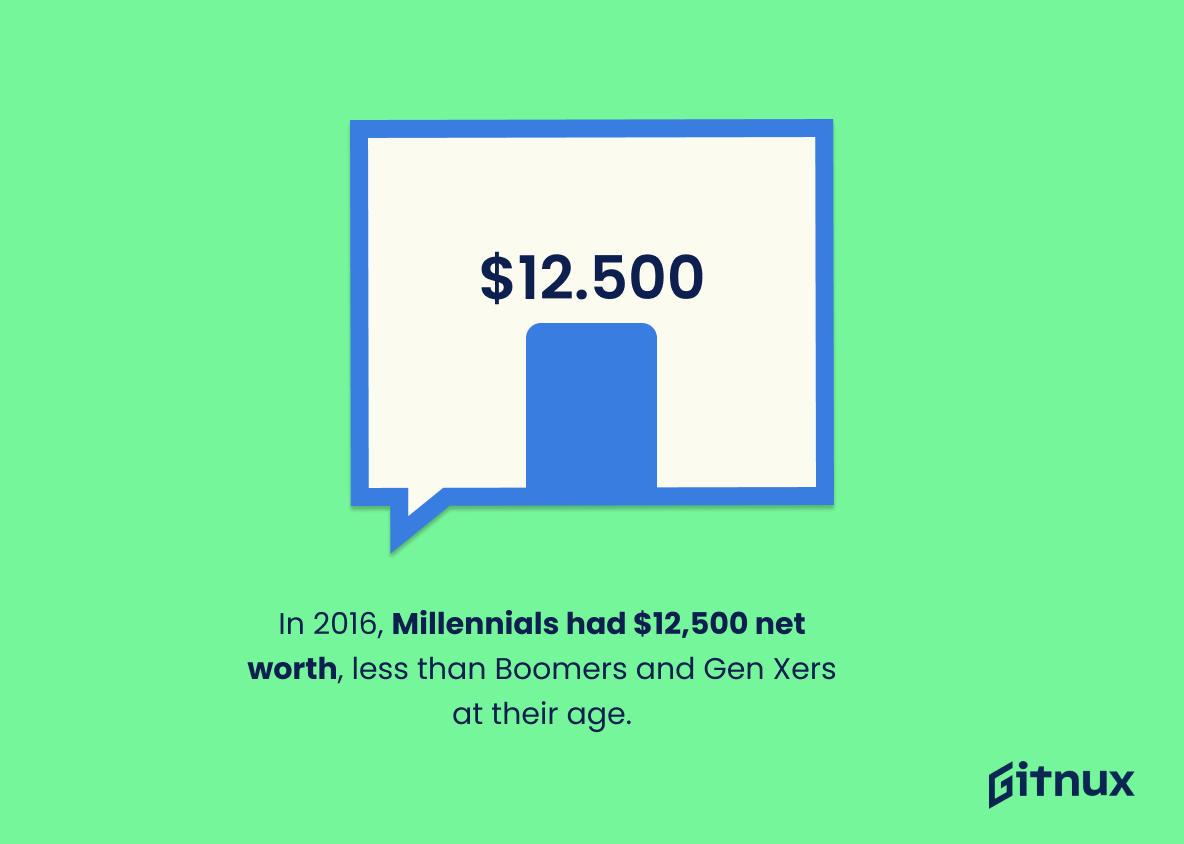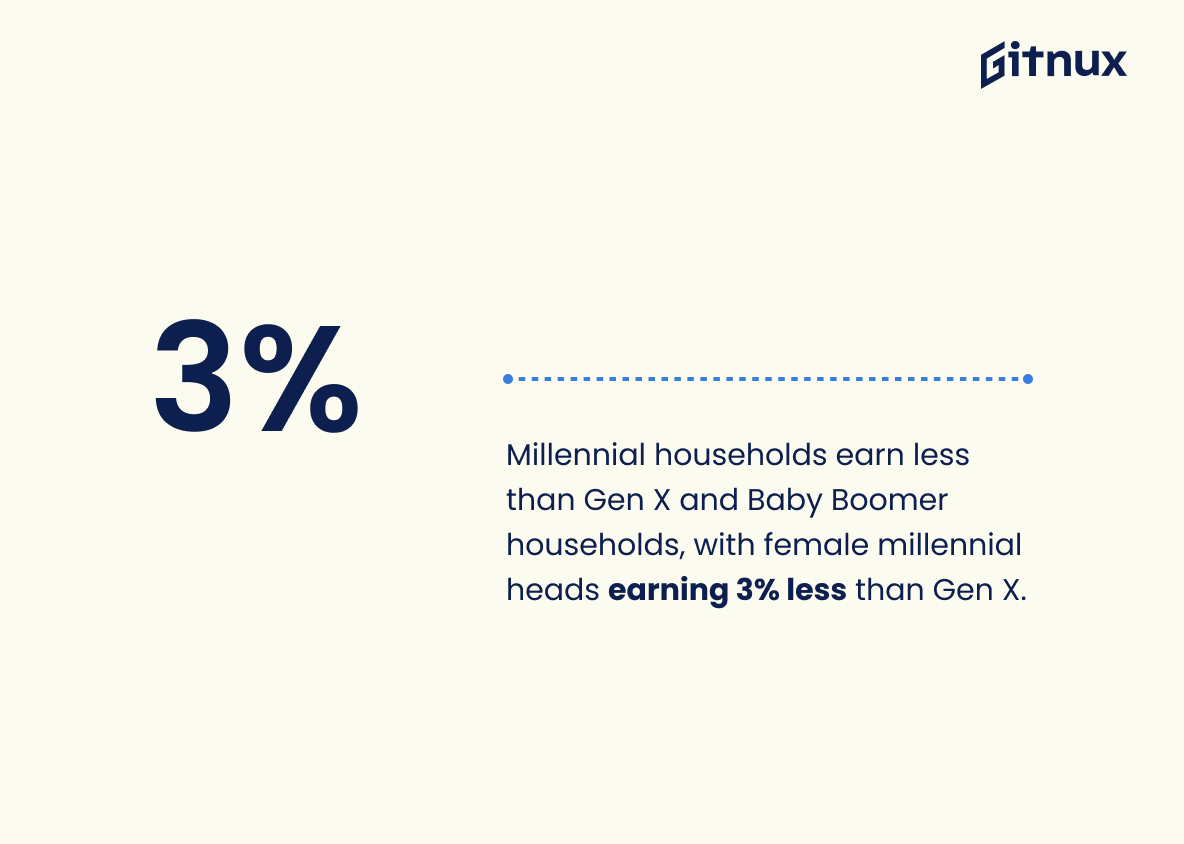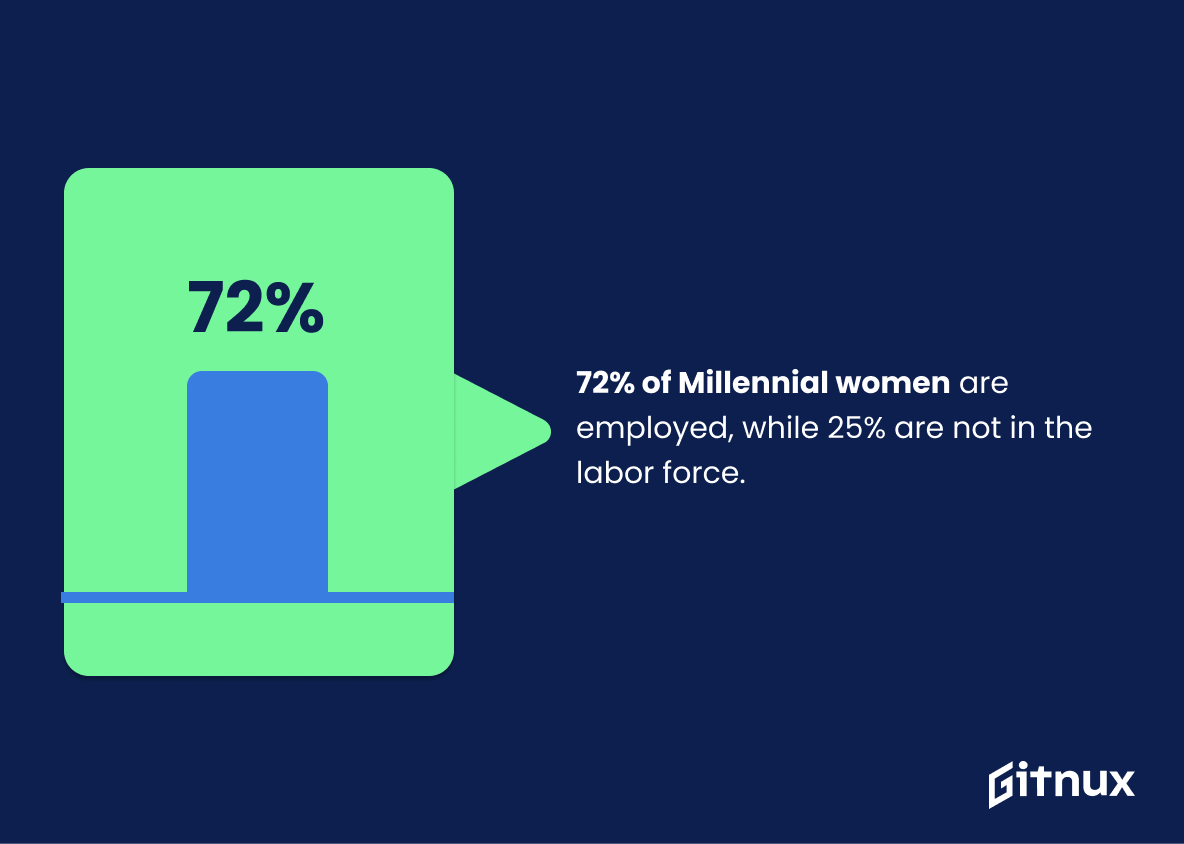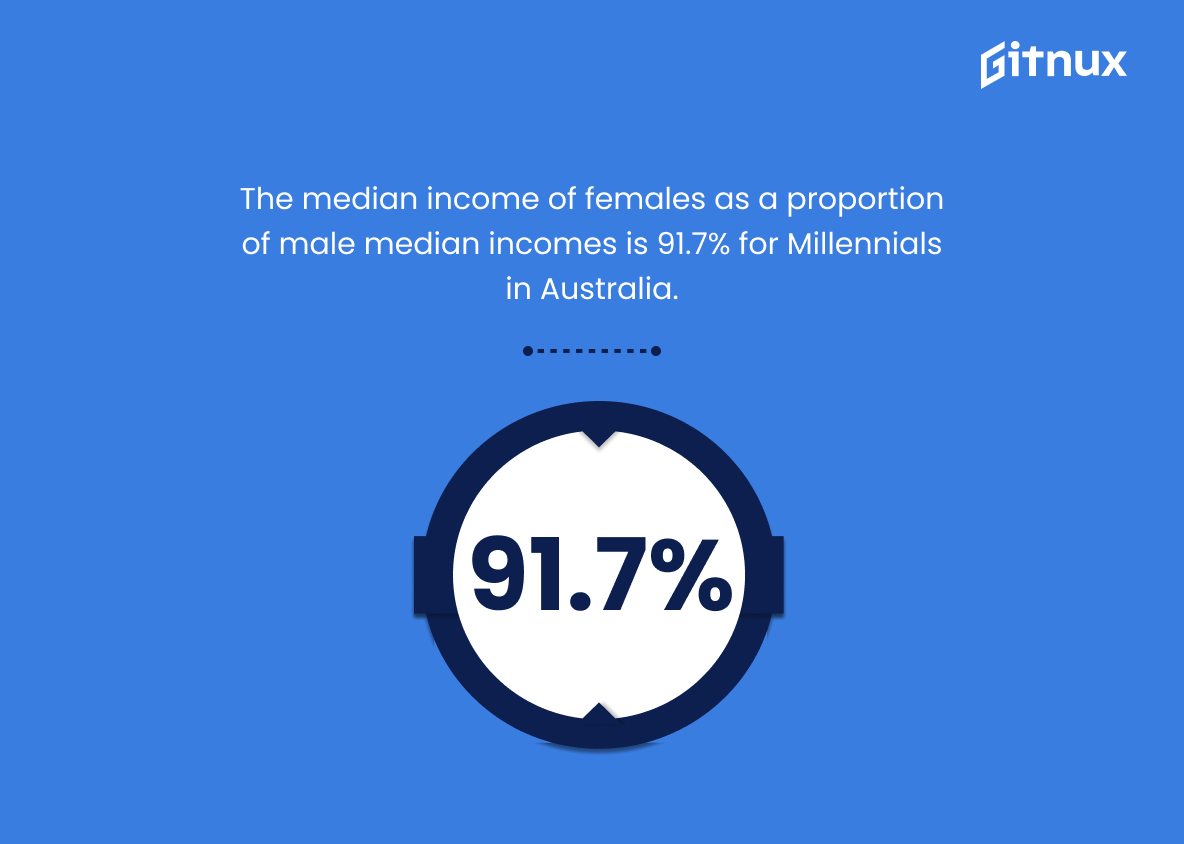Millennials are often seen as the generation that is struggling the most financially. But what does the data say? In this article, we will take a look at the latest Millennial income statistics and discuss what they mean for the future of this generation.
We will also explore the potential implications of these statistics and how they could shape the economic landscape in the years to come. So, let’s dive in and take a closer look at the Millennial income statistics.
Millennial Income: Most Important Statistics
Millennial workers with a college degree or more earn approximately the same as college-educated Generation X workers in 2001, but those with some college or no college education earn less than their Baby Boomer counterparts.
Millennial households have lower family income than Generation X and Baby Boomer households, with female millennial household heads having 3% lower median labor earnings than their Generation X counterparts.
Millennial Income: Statistics Overview
Millennials are more likely to live with their parents and rent than previous generations due to poor economic conditions, which affects their financial future.
Millennials are facing more financial insecurity than previous generations, which could have long-term implications for their economic success.
Millennials have more student debt than Gen Xers, with a median amount of debt that is 50% greater ($19,000 compared to $12,800).
This explains why Millennials have less generational wealth than earlier generations. The higher amount of debt that Millennials have to pay off means that they have less money to save and invest, which contributes to the lower generational wealth.
Millennials prioritize job security and salary over gender diversity when considering a job opportunity, with 70% citing job security and salary as the most important factors and 36% citing gender diversity.
Millennials are more likely to prioritize financial security over other factors when looking for a job.
Millennials are as likely to stay with their employers as Gen Xers were at the same age.
Millennials are not necessarily job hopping and can stay with the same employer for a longer period of time, leading to increased job stability and higher incomes.
Millennial workers with a college degree or more earn approximately the same as college-educated Generation X workers in 2001, but those with some college or no college education earn less than their Baby Boomer counterparts.
Millennial workers with less education are not seeing the same wage growth as those with higher education, which could have a significant impact on their ability to save and invest for the future.
The median adjusted household income for Millennial-headed households with a bachelor’s degree or higher was $105,300 in 2018, which is significantly higher than households headed by high school graduates ($49,300).
The gap in income between those with higher education and those with lower education is growing, which could lead to increased economic inequality among Millennials.
Millennials have significantly less wealth than Boomers and Gen Xers at the same age, with a median net worth of $12,500 in 2016 compared to $20,700 and $15,100 respectively.
Millennials are not able to build wealth as quickly as their predecessors, which can have long-term implications for their financial security and ability to save for retirement.
Millennial households have lower family income than Generation X and Baby Boomer households, with female millennial household heads having 3% lower median labor earnings than their Generation X counterparts.
Millennials are not able to achieve the same level of financial security as their parents and grandparents, which could have long-term implications for their economic well-being and ability to save for retirement.
Millennial women are more likely to be employed than their Boomer predecessors, with 72% employed and 25% not in the labor force.
This matters because it demonstrates the progress made in terms of gender equality in the workforce, and could potentially lead to higher incomes for Millennial women.
The median income of females as a proportion of male median incomes is 91.7% for Millennials in Australia.
The gender pay gap is still an issue for Millennials in Australia, as the median income of females is only 91.7% of male median incomes.
This suggests that there is still a need for further action to close the gender pay gap.
Conclusion
In conclusion, Millennial income statistics show that Millennials are earning less than previous generations, but they are also more likely to have higher levels of education and are more likely to be employed in higher-paying jobs.
Millennials are also more likely to invest in their future, such as buying a home or saving for retirement. Despite the lower incomes, Millennials are still making strides in their financial lives and are making positive changes for the future.
References
1 – Millennials – Statistics & Facts | Statista
2 – How Millennials compare with prior generations | Pew Research Center
3 – Leading factors when choosing a job for Millennials and Generation Z U.S. 2019 | Statista
4 – 2018080pap.pdf (federalreserve.gov)
5 – “Back in my day” – comparing Millennials with earlier generations | Australian Bureau of Statistics (abs.gov.au)
